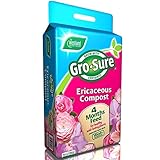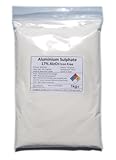Do hydrangeas need ericaceous compost?
Our site is reader supported, this means we may earn a small commission from Amazon and other affiliates when you buy through links on our site.
Hydrangeas can survive in many types of soils, but they need rich nutrients and moist,
What is ericaceous soil?
Ericaceous soil or compost is highly acidic, lime free. It is not something appropriate for all plants, as some plants simply cannot tolerate the acidic breakdown. Traditionally, this type of soil was mixed with peat but can be mixed with bark as well.
Figuring out if your hydrangeas need ericaceous compost really depends on the type of hydrangea you have, and whether you are trying to control the flower color.
Consider this: bigleaf hydrangeas are the most common type of hydrangea. They are the shrubs with the big blue or pink blooms with a few pinks and purples thrown in for good measure. What is most interesting about these particular varieties, the mopheads or the lacecaps, is that you can control the color of the blooms by changing the soil ph. Adding compost to alter the pH of the soil will determine the color of the blooms you get. If you want or have blue hydrangeas you need ericaceous compost. For other colours and white normal multi-purpose or shrub compost is fine.
Hydrangea care
When you are cultivating these types of hydrangeas, they need an area that is exposed to morning sunlight but shaded in the afternoon. This helps them to retain moisture in the soil. This is also why so many gardeners use them in their shaded border regions of a yard. As mentioned, these shrubs need rich soil that remains moist. Increasing the amount of organic matter will help the roots to conserve moisture at the roots. For lighter soil, ericaceous fertilizers can be added to help feed the hydrangeas.
*Note*
Not all varieties can change the
Hydrangea soil pH
You can add ericaceous compost to your soil in order to change the pH of the soil and subsequently, the color of the blooms you see in your garden. Soils that are acidic, with pH of 5.5. or less, full of ample aluminium, will turn blue. Soils that are alkaline, with a high pH and less aluminium will turn pink.
If your soil is neutral, you can also make your flowers blue by adding a blueing agent with aluminum sulphate to your soil.
The most effective method for potted hydrangeas though is to add ericaceous compost to the potting mix.
The fact that the shrub grows in almost any level of pH is what makes it so reliable. Regardless of your original soil composition, you can still achieve beautiful blooms.
To do this, you should:
- Purchase an at home test kit for soil pH.
- Administer a test to get a baseline of your existing soil.
- Add ericaceous compost or acidifiers to change the acidity.
- Regularly re-test to verify that you have the desired pH.
Reminder:
Your soil will always return to its natural state. So if you plan to turn the flowers blue on your hydrangeas, be prepared to add ericaceous compost to the soil every year in order to maintain the blue
Image by xcoffeeelenax from Pixabay
Last update on 2025-04-05 / Affiliate links / Images from Amazon Product Advertising API






